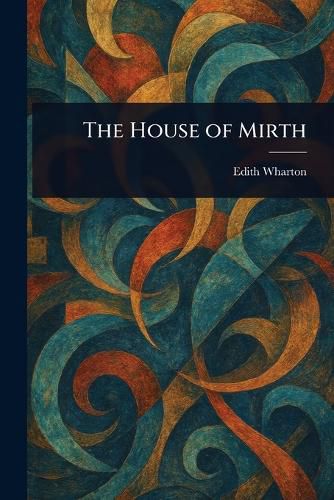Readings Newsletter
Become a Readings Member to make your shopping experience even easier.
Sign in or sign up for free!
You’re not far away from qualifying for FREE standard shipping within Australia
You’ve qualified for FREE standard shipping within Australia
The cart is loading…






This title is printed to order. This book may have been self-published. If so, we cannot guarantee the quality of the content. In the main most books will have gone through the editing process however some may not. We therefore suggest that you be aware of this before ordering this book. If in doubt check either the author or publisher’s details as we are unable to accept any returns unless they are faulty. Please contact us if you have any questions.
Edith Wharton's "House of Mirth" masterfully depicts the intricate and unforgiving world of New York society during the Gilded Age. This classic of American literature explores the rigid social classes and the devastating consequences for those who dare to defy its unspoken rules.
At the heart of the story is a tragic heroine navigating the treacherous landscape of wealth, status, and reputation. "House of Mirth" examines the constraints placed upon individuals within a society obsessed with appearances and material possessions. Wharton's keen observations and elegant prose create a powerful and enduring portrayal of a bygone era, where fortunes are made and lost, and social standing dictates one's destiny. A timeless exploration of societal pressures and personal aspirations.
This work has been selected by scholars as being culturally important, and is part of the knowledge base of civilization as we know it.
This work is in the public domain in the United States of America, and possibly other nations. Within the United States, you may freely copy and distribute this work, as no entity (individual or corporate) has a copyright on the body of the work.
Scholars believe, and we concur, that this work is important enough to be preserved, reproduced, and made generally available to the public. We appreciate your support of the preservation process, and thank you for being an important part of keeping this knowledge alive and relevant.
$9.00 standard shipping within Australia
FREE standard shipping within Australia for orders over $100.00
Express & International shipping calculated at checkout
Stock availability can be subject to change without notice. We recommend calling the shop or contacting our online team to check availability of low stock items. Please see our Shopping Online page for more details.
This title is printed to order. This book may have been self-published. If so, we cannot guarantee the quality of the content. In the main most books will have gone through the editing process however some may not. We therefore suggest that you be aware of this before ordering this book. If in doubt check either the author or publisher’s details as we are unable to accept any returns unless they are faulty. Please contact us if you have any questions.
Edith Wharton's "House of Mirth" masterfully depicts the intricate and unforgiving world of New York society during the Gilded Age. This classic of American literature explores the rigid social classes and the devastating consequences for those who dare to defy its unspoken rules.
At the heart of the story is a tragic heroine navigating the treacherous landscape of wealth, status, and reputation. "House of Mirth" examines the constraints placed upon individuals within a society obsessed with appearances and material possessions. Wharton's keen observations and elegant prose create a powerful and enduring portrayal of a bygone era, where fortunes are made and lost, and social standing dictates one's destiny. A timeless exploration of societal pressures and personal aspirations.
This work has been selected by scholars as being culturally important, and is part of the knowledge base of civilization as we know it.
This work is in the public domain in the United States of America, and possibly other nations. Within the United States, you may freely copy and distribute this work, as no entity (individual or corporate) has a copyright on the body of the work.
Scholars believe, and we concur, that this work is important enough to be preserved, reproduced, and made generally available to the public. We appreciate your support of the preservation process, and thank you for being an important part of keeping this knowledge alive and relevant.